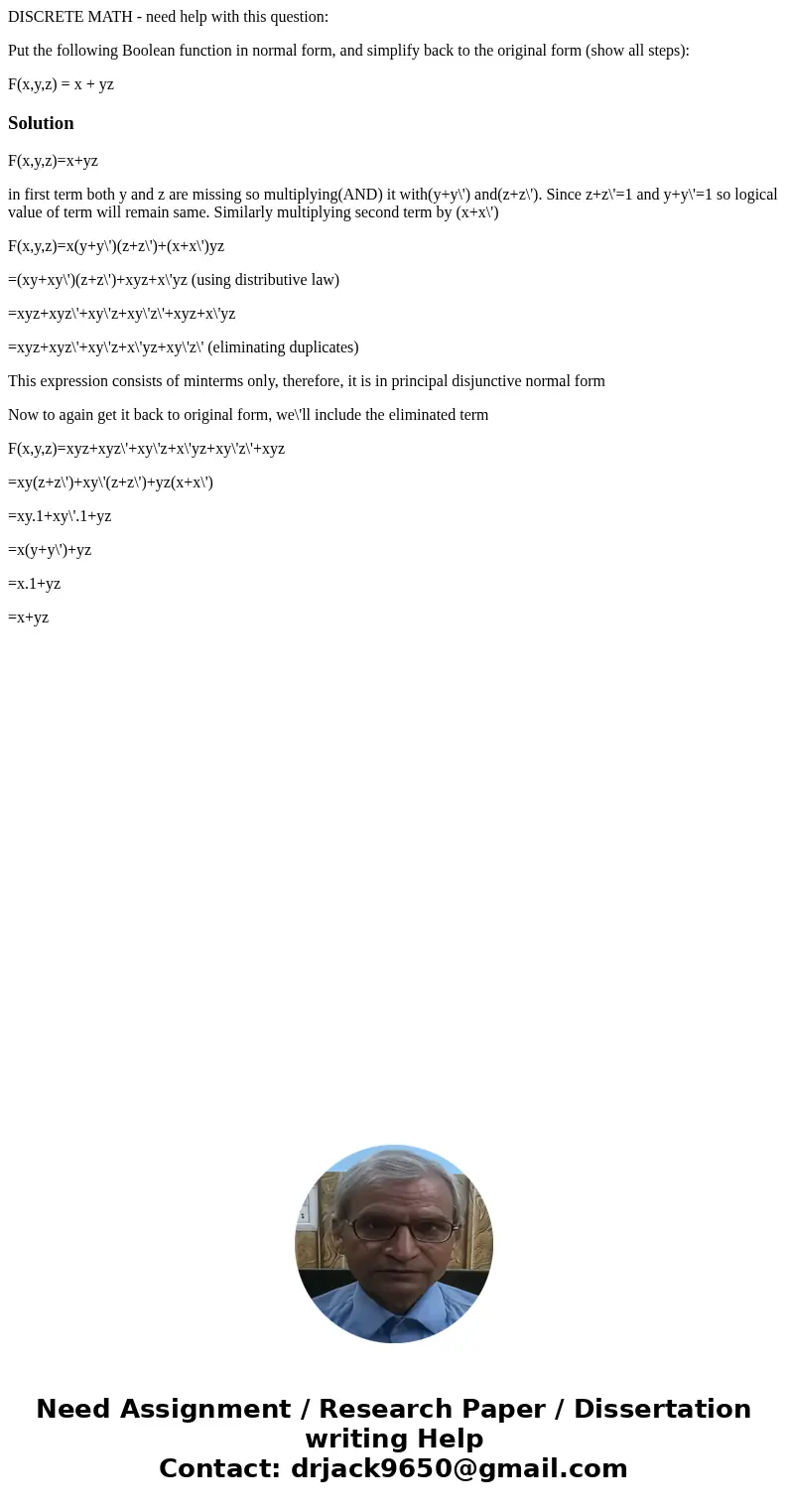DISCRETE MATH need help with this question Put the followin
DISCRETE MATH - need help with this question:
Put the following Boolean function in normal form, and simplify back to the original form (show all steps):
F(x,y,z) = x + yz
Solution
F(x,y,z)=x+yz
in first term both y and z are missing so multiplying(AND) it with(y+y\') and(z+z\'). Since z+z\'=1 and y+y\'=1 so logical value of term will remain same. Similarly multiplying second term by (x+x\')
F(x,y,z)=x(y+y\')(z+z\')+(x+x\')yz
=(xy+xy\')(z+z\')+xyz+x\'yz (using distributive law)
=xyz+xyz\'+xy\'z+xy\'z\'+xyz+x\'yz
=xyz+xyz\'+xy\'z+x\'yz+xy\'z\' (eliminating duplicates)
This expression consists of minterms only, therefore, it is in principal disjunctive normal form
Now to again get it back to original form, we\'ll include the eliminated term
F(x,y,z)=xyz+xyz\'+xy\'z+x\'yz+xy\'z\'+xyz
=xy(z+z\')+xy\'(z+z\')+yz(x+x\')
=xy.1+xy\'.1+yz
=x(y+y\')+yz
=x.1+yz
=x+yz

 Homework Sourse
Homework Sourse